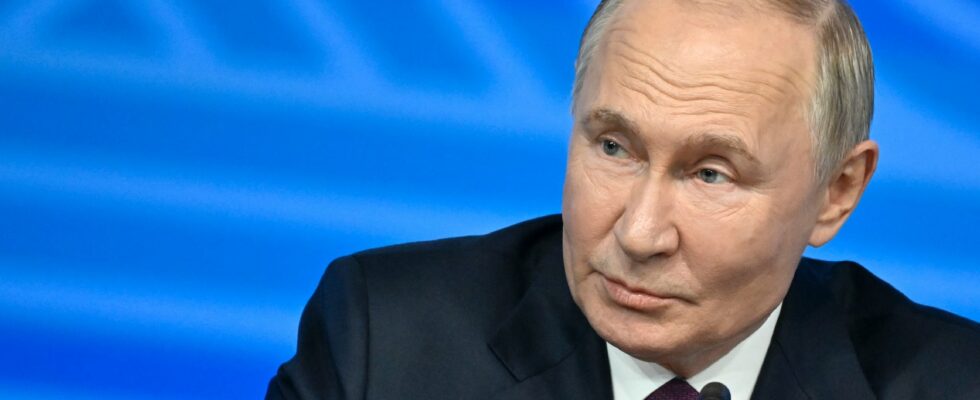A declining birth rate that worries Vladimir Putin. Russia is worried about a “very tense demographic situation”, Kremlin spokesperson Dmitri Peskov said this Friday, November 22, in an interview relayed by the state agency Ria Novosti. “Migrants are a need,” added the official. “We live in the largest country in the world, but we are few in number.” Estimated at 143.8 million inhabitants last year, the Russian population has experienced a significant decline since the 1980s. At the time, the USSR had at least 10 million additional inhabitants, before the decline of the regime The Soviet Union did not cause the downward trend to continue until the start of the new millennium.
A slight rebound in the birth rate, then a further decline
Despite a slight rebound until the end of the 2010s, the decrease in population has increased again in recent years. Above all, projections for the coming decades show that Russia is expected to experience a continued reduction in the number of its inhabitants. According to projections from the UN Department of Economic and Social Affairs, the country could lose 15% of this figure by 2100, or just under 20 million inhabitants. A prospect which is enough to make the Russian authorities shudder, as the demographic issue represents a major challenge for allowing Russia to continue to exist on the international scene in the long term.
“So that we can develop dynamically, carry out all development projects, we need a workforce,” explained Dmitri Peskov. According to him, the Russian authorities can only “welcome” the arrival of migrants in the country. In July, the Kremlin had already recognized a demographic situation that was “catastrophic for the future of the nation”. In order to remedy this crisis, the Russian Parliament adopted a law on November 12 prohibiting the promotion of a child-free lifestyle. This text provides for heavy fines for any person who engages in comments promoting such a life project.
The war in Ukraine, an aggravating factor in the decline in population
The reduction in the birth rate is one of the most alarming data for Russia. In 2023, the fertility rate was 1.41 children per woman of childbearing age, according to estimates from the Russian statistics agency (Rosstat), cited by the economic daily RBC. A figure far from the population renewal rate, but also from the results in some of the other regions of the world. Although declining, the birth rate in France stood at 1.64 children per woman last year. In the United States, it reached 1.62 children per woman over the same period. Even worse for Russia: this drop in the number of births has continued to fall in recent months. Still according to Rosstat, only 920,200 children were born between January and September 2024, a decrease of 3.4% compared to the same period of the previous year. This is the worst record in this area since the end of the 90s.
The conflict in Ukraine increases Russia’s poor demographic dynamics. On the one hand, a segment of the population left the federation after the invasion of the neighboring country by Kremlin troops. At least several hundred thousand may have fled abroad, perhaps up to a million people according to some projections, but their number is impossible to quantify with precision. This data as such represents a demographic gap for the Russian authorities. More generally, the vagueness about the continuation of the conflict may curb the plans of certain Russians to start a family, according to certain specialists. “The war has lasted for three years and now directly affects Russian territory,” geopolitics specialist Alex Kokcharov told Bloomberg in mid-September, according to comments reported by Euronews. Money is not the only factor. As the security situation in border regions is uncertain, families are postponing their decision to have children.”
Vladimir Putin’s desire to revive the birth rate in Russia, however, does not date from the start of the Ukrainian conflict. During his second presidential term, in 2006, he initiated a series of measures to try to improve the situation, for example putting in place financial aid to help the parents of a first child. The demographic decline constituted at the time “the most serious problem in modern Russia”, he said during his annual address to the nation. The international and economic context in Russia was nevertheless not the same as today. “While the country faces a declining birth rate, an increasingly elderly population, high adult mortality and infertility among both men and women, limited increases in immigration and brain drain which continues in the country puts Russia particularly to the test”, summarized researcher Harley Balzer this summer, in an analysis published by the Atlantic Council, an American think tank.
